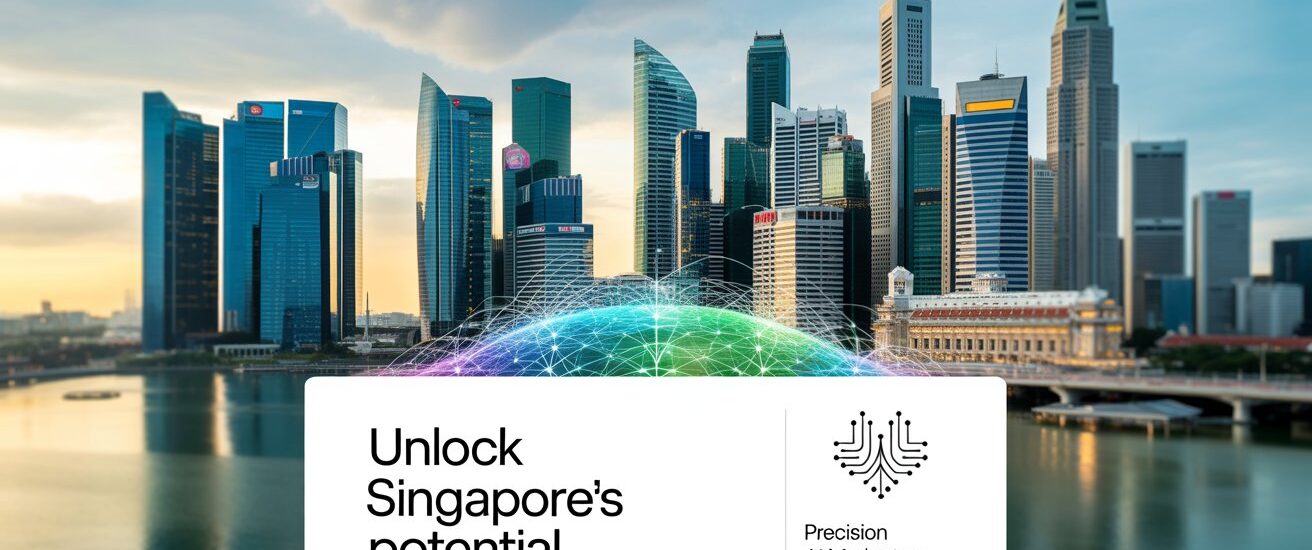The Rise of AI Marketing in Singapore
Singapore has always been a front-runner in embracing innovation. From its smart city initiatives to its digital-first economy, the nation thrives on leveraging technology to stay ahead. Now, the spotlight is on AI Marketing—a transformative approach that blends data, automation, and human creativity to sharpen business strategies.
Unlike traditional marketing, which relies heavily on guesswork and broad targeting, AI-driven strategies turn raw data into actionable insights. They allow businesses to reach the right audience, at the right time, with the right message. For companies in Singapore, where competition is fierce and consumer expectations are sky-high, precision is no longer a luxury—it’s a necessity.
This shift toward AI isn’t just about efficiency; it’s about staying relevant. Consumers are bombarded with content daily, and without intelligent systems to filter noise, brands risk being forgotten. Singaporean businesses that adopt AI Marketing early position themselves as leaders, not followers. They move from reactive campaigns to proactive strategies that anticipate customer needs before customers even articulate them.
The rise of AI in marketing signals a new era of growth—one where creativity is amplified by machine intelligence, and where ROI is not just measured in numbers but in sustainable brand loyalty. Singapore, with its robust digital infrastructure and forward-thinking enterprises, is the perfect breeding ground for this transformation.
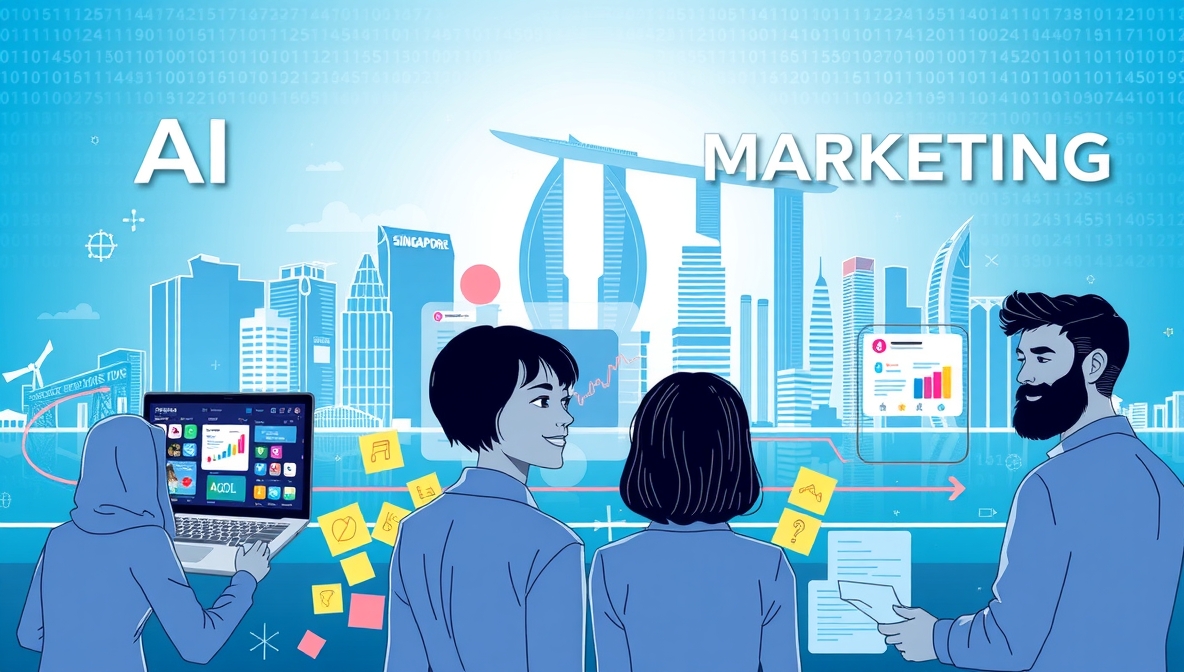
Why AI Marketing Matters for Businesses in Singapore
In Singapore’s compact yet highly competitive market, precision is everything. Unlike larger economies, where broad strokes can still yield results, Singaporean businesses operate in a tightly knit ecosystem. Consumers here are digitally savvy, highly selective, and demand personalized experiences. This is exactly where AI Marketing becomes indispensable.
By harnessing advanced algorithms, AI can analyze consumer behavior patterns across platforms—social media, e-commerce sites, and search engines. Instead of vague demographic targeting, AI provides laser-focused insights. It can identify micro-segments, predict purchase intent, and even adjust campaigns in real-time based on engagement levels.
For example, an F&B brand in Singapore can use AI-driven tools to understand not only when people are most likely to order food but also what dishes they’re craving. Similarly, a fintech company can leverage predictive analytics to recommend services that align with a customer’s spending habits and life stage. These aren’t just theoretical perks—they’re strategies that directly boost ROI.
Moreover, Singapore’s government initiatives, such as Smart Nation and AI Singapore, create a fertile ground for businesses to adopt and scale these technologies. With strong regulatory frameworks and high digital literacy, the barriers to adoption are far lower compared to other markets.
For businesses, AI Marketing isn’t just a competitive advantage—it’s survival. Without it, companies risk wasting ad spend, alienating consumers with irrelevant messaging, and falling behind in a market that moves at breakneck speed.
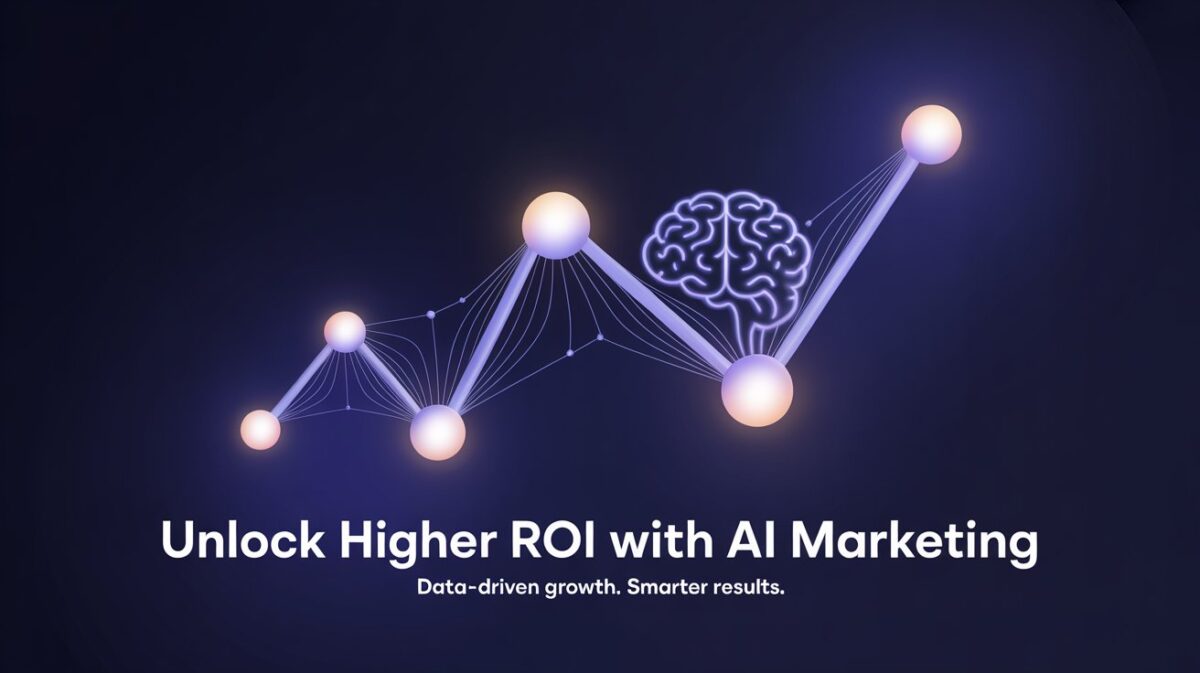
Key Benefits of AI Marketing for Higher ROI
The core promise of AI Marketing is simple: better results with fewer wasted resources. But when we dig deeper, its benefits become much more compelling.
First, hyper-personalization. Traditional marketing often paints with a broad brush, hoping something sticks. AI flips this approach by tailoring every touchpoint—from email subject lines to dynamic website content—to the individual consumer. This level of personalization drives higher engagement, conversions, and ultimately revenue.
Second, predictive analytics empowers businesses to anticipate consumer behavior. Instead of reacting to what customers did yesterday, brands can prepare for what they’ll do tomorrow. This reduces guesswork and sharpens decision-making, ensuring that marketing spend is allocated to strategies with the highest probability of success.
Third, real-time optimization is a game-changer. Campaigns no longer need to run their full course before adjustments are made. AI continuously analyzes performance metrics and adjusts bids, creatives, and targeting to maximize ROI on the fly.
Finally, cost efficiency cannot be overstated. By automating repetitive tasks—like A/B testing, audience segmentation, and reporting—AI frees up human marketers to focus on strategic and creative initiatives. The outcome? Lower operational costs and a higher return on every marketing dollar.
For Singaporean businesses operating in a high-cost environment, these advantages are not just beneficial—they’re essential for sustainable growth.
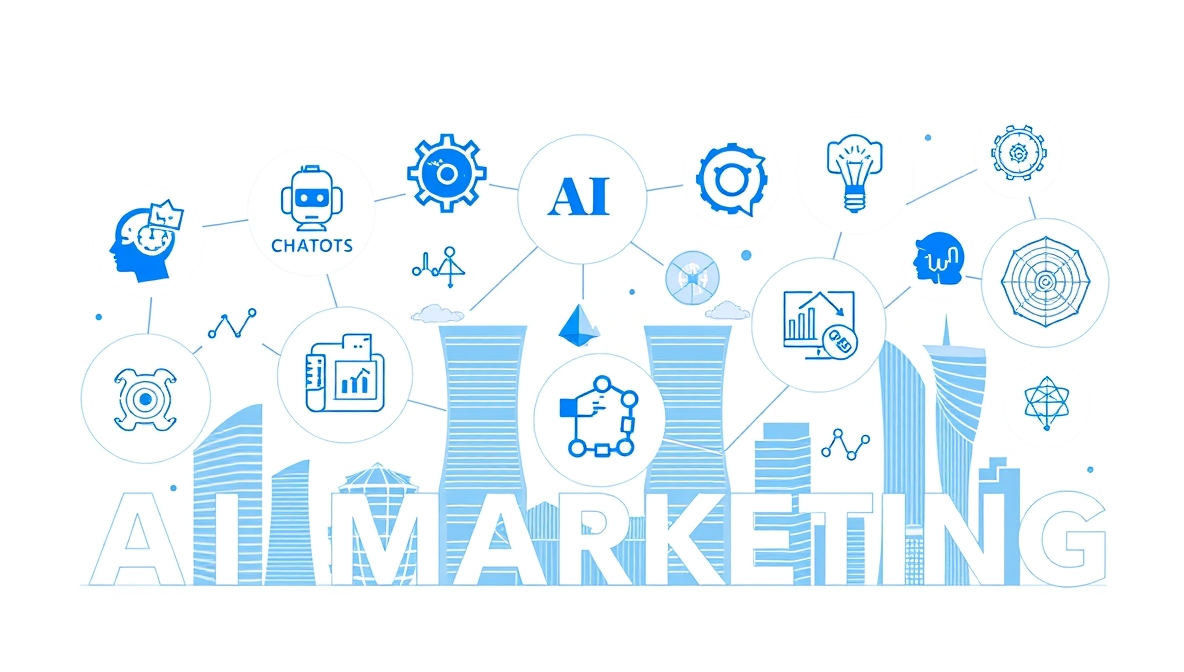
Popular AI Marketing Tools and Technologies in Singapore
The ecosystem of AI-driven tools is expanding rapidly, and Singaporean businesses are not short of options. The challenge isn’t whether tools exist but which ones deliver the most impact.
Chatbots and conversational AI are already mainstream, providing round-the-clock customer service without the overhead of large support teams. Many local retailers and service providers use them to resolve queries instantly, reducing churn and enhancing customer satisfaction.
Predictive analytics platforms like Salesforce Einstein or Adobe Sensei help businesses understand buying patterns and recommend products. In Singapore’s e-commerce space, these tools are driving personalized shopping experiences that mirror the precision of an in-store salesperson.
Programmatic advertising platforms are another pillar. Tools such as Google’s Display & Video 360 allow businesses to run highly targeted ad campaigns across multiple channels with minimal human intervention. AI algorithms ensure that ads are shown to the right person at the right time, eliminating wasted impressions.
Additionally, content generation tools powered by natural language processing are helping marketers draft personalized emails, blogs, and ad copy at scale. Instead of replacing human creativity, these tools enhance it by taking over repetitive writing tasks.
What makes Singapore unique is its openness to testing and adopting these tools quickly. From SMEs to multinational corporations, the appetite for leveraging technology to sharpen competitive advantage is high. The future belongs to those who not only invest in these tools but also integrate them seamlessly into their broader marketing strategy.

How Local Businesses Are Using AI for Precision Strategies
Across Singapore, AI Marketing is no longer theory—it’s practice. Local businesses are using AI not just to automate but to transform how they engage with consumers.
Take retail, for instance. Fashion brands are deploying AI-powered recommendation engines to provide shoppers with curated product suggestions online. This creates a bespoke shopping journey, increasing both basket size and customer loyalty.
In the financial sector, banks are utilizing AI-driven chatbots and predictive models to guide customers toward products tailored to their needs—be it a credit card, loan package, or investment plan. By predicting life events such as travel or property purchases, banks can position themselves as proactive partners rather than reactive service providers.
Food delivery platforms are another prime example. Using AI, they can forecast order surges during lunch and dinner hours, optimize delivery routes, and even suggest add-ons based on past preferences. These strategies boost both customer satisfaction and average order value.
The common thread across industries is precision. Instead of bombarding customers with generic campaigns, businesses are harnessing AI to craft experiences that resonate on a personal level. The result? Stronger relationships, higher retention, and a measurable lift in ROI.
Singapore’s compact yet dynamic market is the perfect testing ground for these precision strategies. Businesses that lean into AI today are not just winning market share—they’re redefining the rules of engagement.

Challenges of AI Marketing in Singapore and How to Overcome Them
As with any transformative technology, AI Marketing isn’t without its challenges. For Singaporean businesses, the hurdles are unique but not insurmountable.
The first challenge is data privacy and compliance. With strict regulations like the Personal Data Protection Act (PDPA), businesses must tread carefully when handling customer information. Transparency and responsible data usage aren’t just legal requirements—they’re essential for maintaining consumer trust.
Another challenge is skill gaps. While AI tools are powerful, they require skilled professionals to implement and interpret them effectively. Many SMEs struggle with a lack of in-house expertise, slowing adoption. This is where partnerships with specialized agencies and training programs can bridge the gap.
Cost of adoption is also a barrier. Although AI tools can deliver significant ROI, the upfront investment can be daunting, especially for smaller businesses. Fortunately, scalable solutions and subscription-based models are making AI more accessible than ever.
Finally, there’s the issue of over-reliance on technology. Businesses must remember that AI is a tool, not a replacement for human creativity and strategy. The most successful campaigns are those that combine machine-driven insights with human empathy and storytelling.
By addressing these challenges head-on, Singaporean businesses can unlock the full potential of AI Marketing while safeguarding trust, compliance, and creativity.
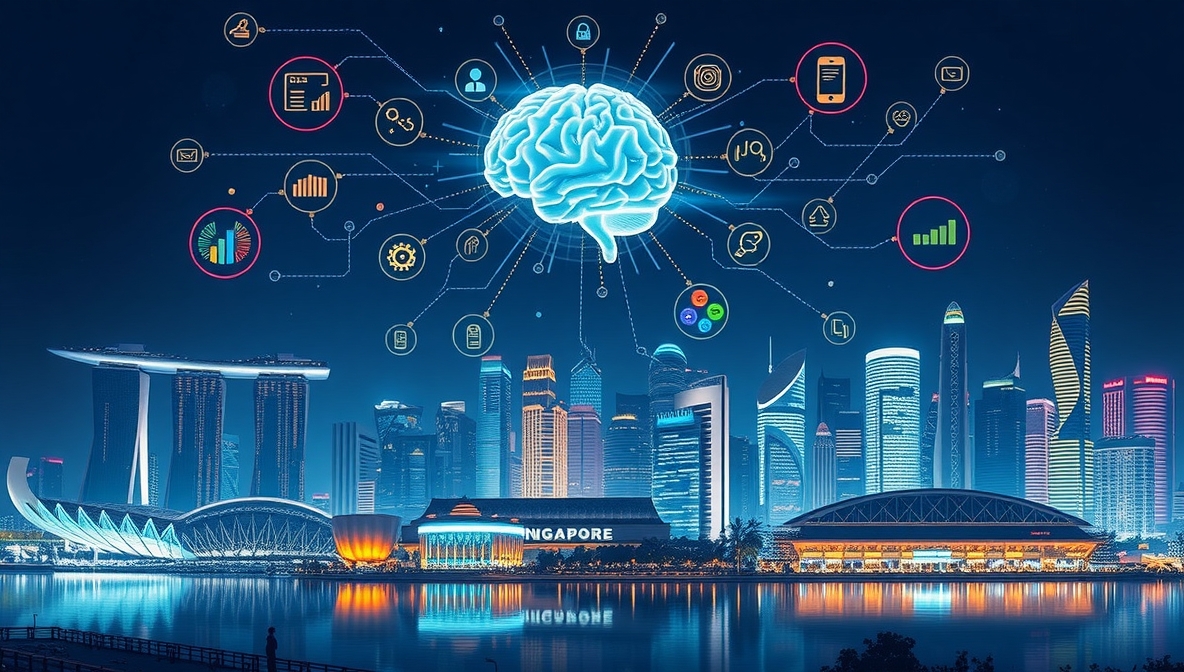
Future Trends: AI Marketing and the Singaporean Market Landscape
The future of AI Marketing in Singapore is as exciting as it is inevitable. Emerging trends are already reshaping how brands connect with their audiences, and the pace is only accelerating.
One key trend is voice search optimization. With the rise of smart assistants, consumers are increasingly using voice commands to search and shop. Businesses that adapt their content for voice-driven queries will enjoy a significant edge.
Another game-changer is AI-driven video personalization. Instead of generic video ads, brands will soon deliver hyper-personalized video messages tailored to individual viewers. Imagine receiving a video where the narrator mentions your name or references your recent purchase—that’s the future of engagement.
Augmented reality (AR) powered by AI is also set to redefine experiences. From virtual try-ons in fashion to immersive property tours in real estate, these innovations will bridge the gap between online browsing and offline buying.
Finally, AI-powered predictive commerce will push businesses toward anticipating consumer needs before customers even express them. Singapore’s tech-savvy population and high adoption of digital services make it an ideal playground for these innovations.
In this landscape, AI Marketing won’t be an optional add-on—it will be the backbone of any serious business strategy. The winners will be those who combine data intelligence with human creativity to craft meaningful, lasting connections.
Conclusion: Unlocking Growth with AI-Powered Precision Marketing
AI Marketing isn’t a passing trend—it’s the new standard. For businesses in Singapore, adopting AI isn’t just about chasing ROI; it’s about building smarter, more sustainable strategies that stand the test of time.
The evidence is clear: companies that embrace AI-driven personalization, predictive analytics, and real-time optimization are consistently outperforming their peers. They’re not just saving money—they’re creating richer, more engaging customer experiences that drive loyalty.
But the journey isn’t without its challenges. From data privacy concerns to the need for skilled talent, businesses must navigate carefully. Yet, those that take the leap now will reap the rewards later, cementing their position in Singapore’s competitive digital landscape.
The future belongs to precision. And in a market as dynamic and demanding as Singapore, precision is power. By harnessing AI Marketing, businesses unlock not just higher ROI but a pathway to deeper customer relationships, stronger brand equity, and sustainable growth.

